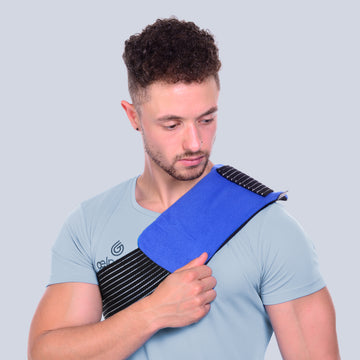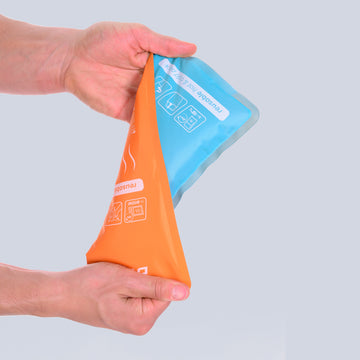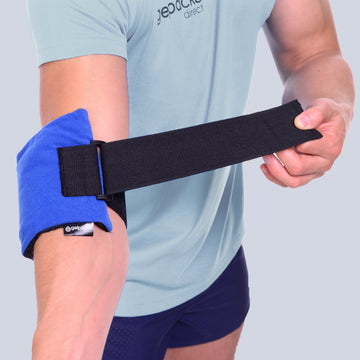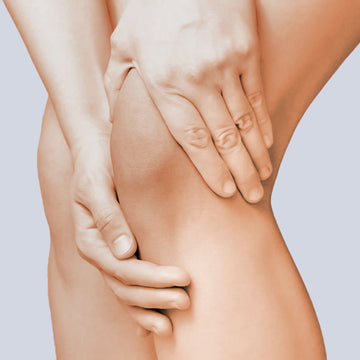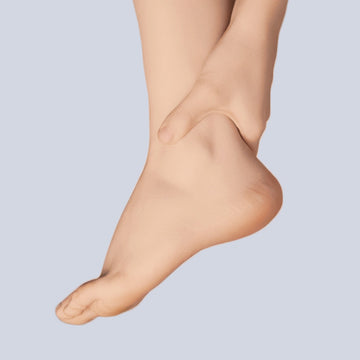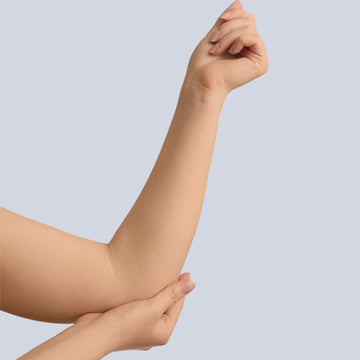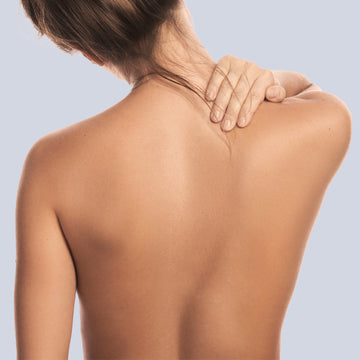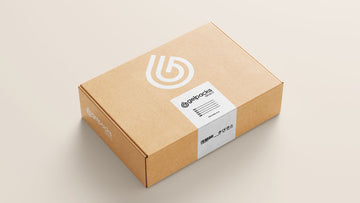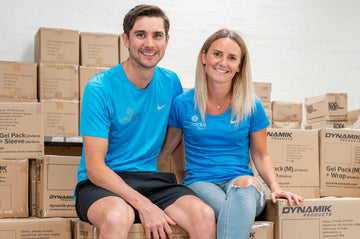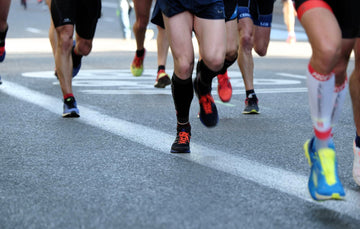Posted by Tia Patel | Jan-07-2021
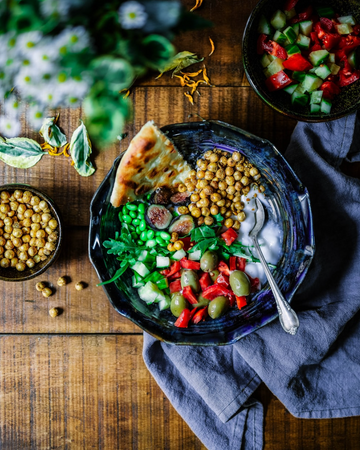
The Pros and Cons of Veganism for Runners
Did you know that if the world went vegan, it could save 8 million human lives by 2050, reduce greenhouse gas emissions by two thirds and lead to healthcare-related savings and avoided climate damages of $1.5 trillion (the vegan society).
More and more of us are starting to recognise the benefits of eating less meat and buying less animal products – be it for health, environmental or ethical reasons, but, is consuming a diet free from all animal products beneficial for runners? Are we really to believe that Mo Farah’s success is down to the fact he fuels up on the plant-protein Quorn??
We’ve got everything you need to know on going vegan as a runner as well as our favourite vegan fuelling cookbooks!
Veganism Pros for running performance
One of the downsides of intense exercise, as many runners will know, is that it challenges the body’s immunity. Upper respiratory infections are particularly troublesome for many athletes. This is where the plant-based diet may demonstrate its biggest benefits. A vegan diet tends to be high in antioxidant-rich fruit and vegetables, nuts and seeds, beans, lentils and whole grains, all of which contain immunity-enhancing phytochemicals which help to protect against infection.
Statistically, individuals who choose to follow a vegan or vegetarian diet tend to have lower instances of heart attacks, stroke and coronary heart disease. As meat eaters we tend to eat more saturated fats which are linked to these conditions. It is however worth noting that vegans and vegetarians also tend to make healthier lifestyle choices, for example, are non smokers, drink less alcohol and exercise more.
Click here for our tips on losing weight without dieting
Vegan diets also tend to have a healthier balance of omega-6 to omega-3 fatty acids. These omega 3s found in flax, hemp, chia, pumpkin and sunflower seeds contribute to a stronger immune system, as well as reducing inflammation in muscles and joints.
The typical meat-rich western diet on the other hand tends to be higher in fats, particularly the omega-6 fatty acids (found in animal fats and dairy as well as junk food) which has been linked to inflammation in the body – not good news for runners. In fact, it’s been shown that people who have a high intake of red meat have greater inflammatory substances in their bodies than people who eat mainly vegetable protein.
In theory, this should allow runners on a vegan diet to run further, faster and for longer periods of time.
The cons of veganism for runners
Athletes, particularly women, have a greater risk for non-anemic iron deficiency when consuming a plant-based diet. Many athletes know that this can greatly affect athletic performance, especially in an endurance athlete.
It has also been observed that in the supramaximal exercise athlete, an athlete that performs exercise in short duration at max effort, i.e. a sprinter, the evidence of lower muscle creatine concentration due to lack of animal protein has an effect on exercise performance. Creatine is an organic acid that humans replenish by eating animal protein. It's sole purpose is to provide energy to muscles.
A plant based diet can lead to a lack of certain nutrients which in turn can increase the chances of injury. So before committing it's important to understand the common deficiencies and how to overcome them:
- Iron - The iron requirement for those training intensely is higher than for the general population, with vegetable sources of iron not as well absorbed as animal sources. It’s estimated that iron-deficiency (anaemia) could be as high as 50 per cent in female athletes, so it’s especially important for vegan female runners to ensure they’re getting enough iron and supplements if tests show low iron levels. Lentils, chickpeas, kidney beans, almonds and cashew nuts and green leafy veg are all good sources.
- Zinc - is essential for immune function and like iron, is harder to absorb from plant sources. This is because certain foods high in zinc like beans, nuts and seeds also contain a substance called phytate which prevents the absorption of zinc – so even if plenty of zinc-rich plant foods are eaten, it may not actually be absorbed. Soaking and sprouting beans, grains, and seeds, and using grain products that rise (for example, bread instead of crackers) reduces the level of phytate but it may be also advisable for vegan athletes to take a zinc supplement.
- B12 - Vegans have lower levels of vitamin B12 than vegetarians who eat dairy and eggs, or flexitarians who occasionally eat meat. As B12 is essential for a healthy nervous system and blood regulation, this may affect athletic performance and energy. Although vegans can get sufficient intake from regular intake of fortified foods like soy products and vegetable extracts or yeast spreads, it’s commonly recommended that vegans take a B12 supplement.
- Protein - Vegans will no doubt be fed up of being asked ‘where do you get your protein?’. Although legumes, grains, nuts and seeds contain protein, they do not provide the ideal mix of amino acids that the body needs in one go, so they are said to be ‘incomplete’. Plant sources of protein are also harder for the body to digest. However, eating the right combination of plant proteins can give the right mix of amino acids. Meat substitutes such as Quorn, are complete proteins and wholewheat bread and peanut butter, or beans and rice for example, are complementary proteins. These proteins don’t need to be eaten at the same meal, so as long as a range of vegetable proteins are eaten throughout the day, the right balance can be achieved.
If you do happen to find yourself with a niggle, its best to treat it before the niggle becomes an injury preventing you from running. Use your gel pack cold for 15 minutes up to 4 times a day in the affected area to reduce inflammation and relieve pain.
Click here for advice on how to get the most out of hot and cold therapy to treat injuries
Tips for a successful veganuary and beyond…
1. Educate yourself on your lifestyle to have a better understanding of your plant based dietary needs.
2. Think about your lifestyle. If you like to eat out, most restaurants usually have vegetarian options but vegan options are still rather limited.
3. Consume a range of foods that are included in a healthy vegan diet: whole grains, legumes, fruits, vegetables, nuts and seeds.
4. Use fortified foods where needed.
5. Supplement when necessary. This is a personal decision and the supplements needed are person-specific.
Best cookbooks for vegan athletes
So you’ve already taken the veganuary plunge or have been inspired to do so for the rest of the month. The key to a successful vegan diet is having a meal plan to ensure you are getting enough calories. So we’ve scoured the internet for the top 3 best plant based recipe books for athletes:
The No Meat Athlete Cookbook
Written by the founder of the No Meat athlete movement Matt Frazier, this book features 150 vegan recipes that are affordable and quick to make, even on your busy days. It includes breakfast and main meal recipes, as well as ideas for natural sports drinks, snacks and treats. There are also meal planning guides, nutritional information and recipes that you can adapt depending on your own preferences.
The Vegetarian Athlete’s Cookbook: More Than 100 Delicious Recipes for Active Living
Written by bestselling author and nutritionist Anita Bean, this book is packed full of delicious and easy to make recipes – many of which are suitable for vegans. Anita is keen to stress that although vegetarian and vegan has its challenges, it is possible to eat healthily and reach your fitness goals without eating meat. The book begins with some key concepts regarding proper nutrition and how as a vegetarian or vegan you can still get the same vitamins and minerals on a plant-based diet. There are over 100 fast, healthy, tasty vegetarian and vegan recipes for breakfast, main meals, desserts, snacks and shakes – and all featuring full nutritional analysis – so you have lots to choose from.
BOSH! Healthy Vegan: Over 80 brand-new recipes with less fat, less sugar and more taste
This book includes lots of vegan recipes with a healthier focus, along with advice on sleep, movement, relaxing and wellbeing. With lots of recipes to help you reduce fat, increase your protein intake, build muscle and generally be a bit healthier. Protein for runners is already a much debated topic, so the fact that this book explains how to get your protein intake and essential nutrients on a vegan diet is extremely useful.
Ultimately, the decision to change to a plant based diet for runners is up to the individual and their own circumstances. Before changing your diet in any way, it is important to do your research and understand the pros and cons. We’d love to hear more about your experiences and if you’ve survived veganuary!
#TeamGPD
